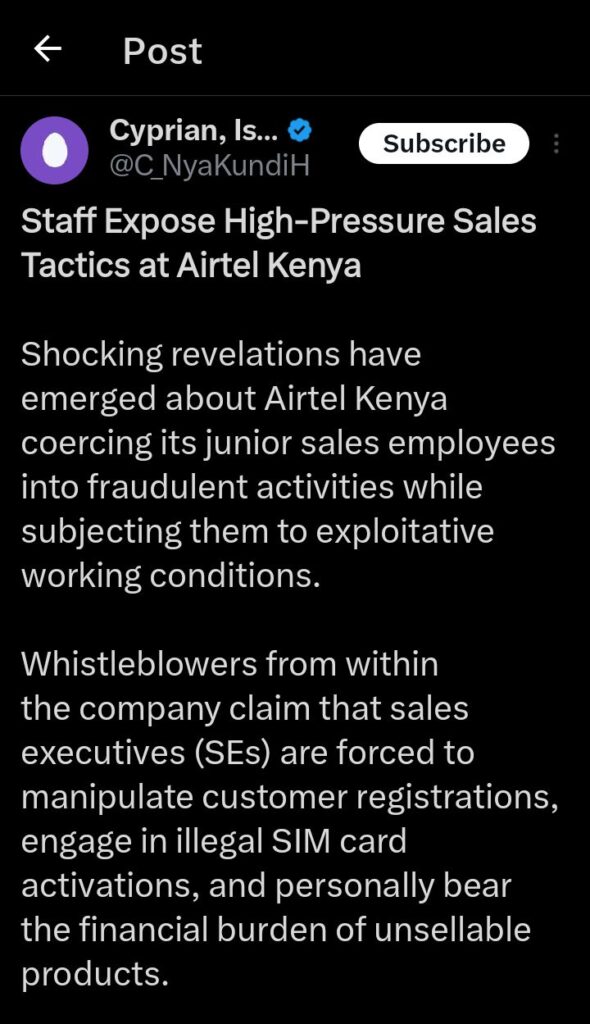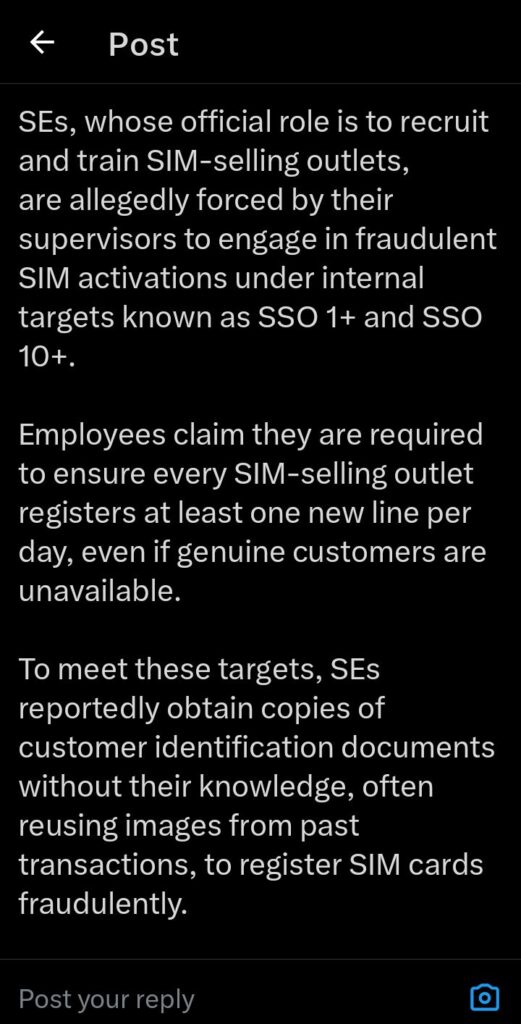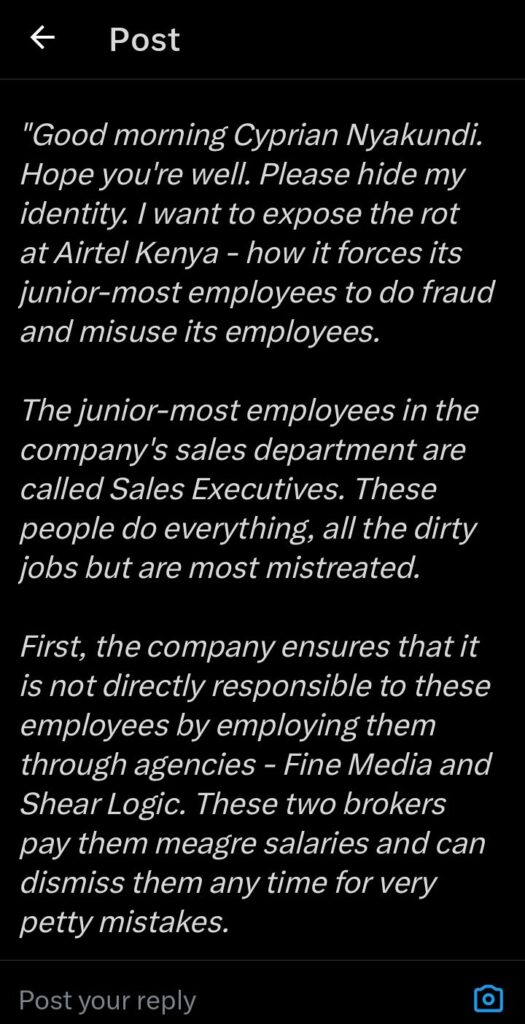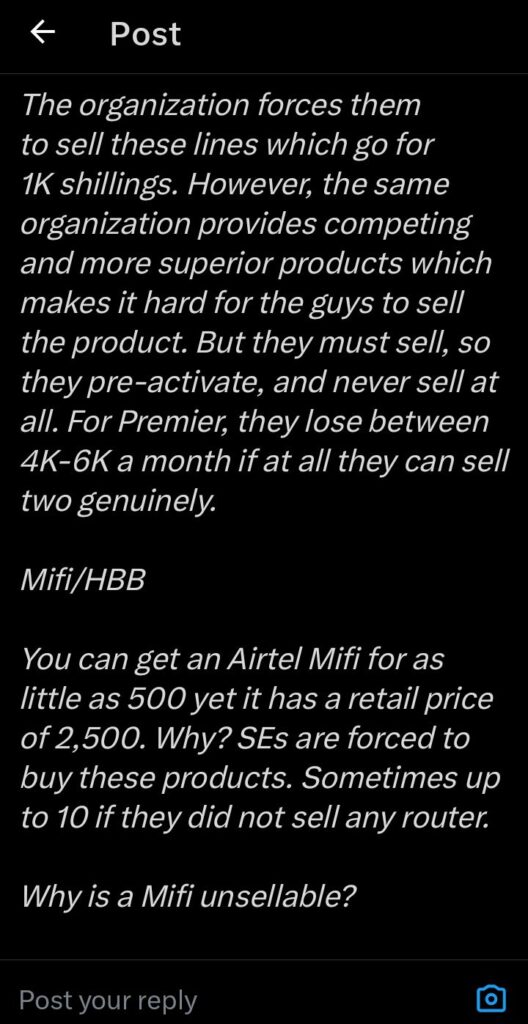Cyprian Nyakundi has exposed Airtel Kenya for mistreating its junior sales employees and forcing them into fraudulent activities.
In a post on his X handle, he shared shocking details from insiders who say Airtel Kenya pushes its sales executives (SEs) to fake SIM card activations and even buy company products with their own money.

These employees work under extreme pressure and fear losing their jobs if they don’t meet unrealistic targets.
According to the information Nyakundi posted, Airtel Kenya does not hire these SEs directly. Instead, it uses agencies like Fine Media and Sheer Logic Management Consultants, which pay them very little and can fire them over the smallest mistakes.

The SEs are supposed to help shop owners sell Airtel SIM cards, but their bosses force them to ensure that every shop activates at least one SIM card daily, whether there are customers or not.
Since it is impossible to get customers every day, the employees end up using customer ID copies sometimes without their knowledge to register fake SIM cards.

Nyakundi also highlighted how Airtel Kenya makes SEs meet a high number of new SIM registrations, also called “gross ads.” Employees say they are forced to register extra SIM cards using one customer’s ID when the person comes for a replacement.
The extra SIMs are then sold to students or even criminals. Aside from fraud, SEs are forced to buy expensive products that they struggle to sell.

For example, they are required to sell SIM cards called “Premier Lines” that cost Ksh 1,000 each. However, Airtel Kenya itself offers better and cheaper alternatives, making these lines hard to sell. If an SE fails to sell, they must buy them personally, leading to losses of between Ksh 4,000 and Ksh 6,000 every month.
Another problem exposed by Nyakundi is the forced sale of Mifi devices and home broadband routers. SEs are required to sell at least 10 Mifi devices monthly. If they don’t, they must buy the remaining stock with their own money.

These routers cost Ksh 2,500 in the market, but insiders say they are available internally for as little as Ksh 500. Employees wonder why there is such a huge price difference and suspect it is another way for the company to exploit them. Even in areas where there is no demand, Airtel Kenya reportedly forces SEs to sell at least five routers per month.
Nyakundi’s sources say Airtel Kenya has unrealistic deadlines that make fraud unavoidable. SEs must meet 200% of their sales targets by the 10th of each month, which means selling six Premier Lines and 10 Mifi devices before mid-month. Employees say this system forces them to engage in fraudulent activities to survive.

The shocking details shared by Cyprian Nyakundi reveal how Airtel Kenya mistreats its junior employees while pushing them to commit fraud. These workers are struggling under unfair policies, and instead of supporting them, the company is making their lives miserable.





















Add Comment